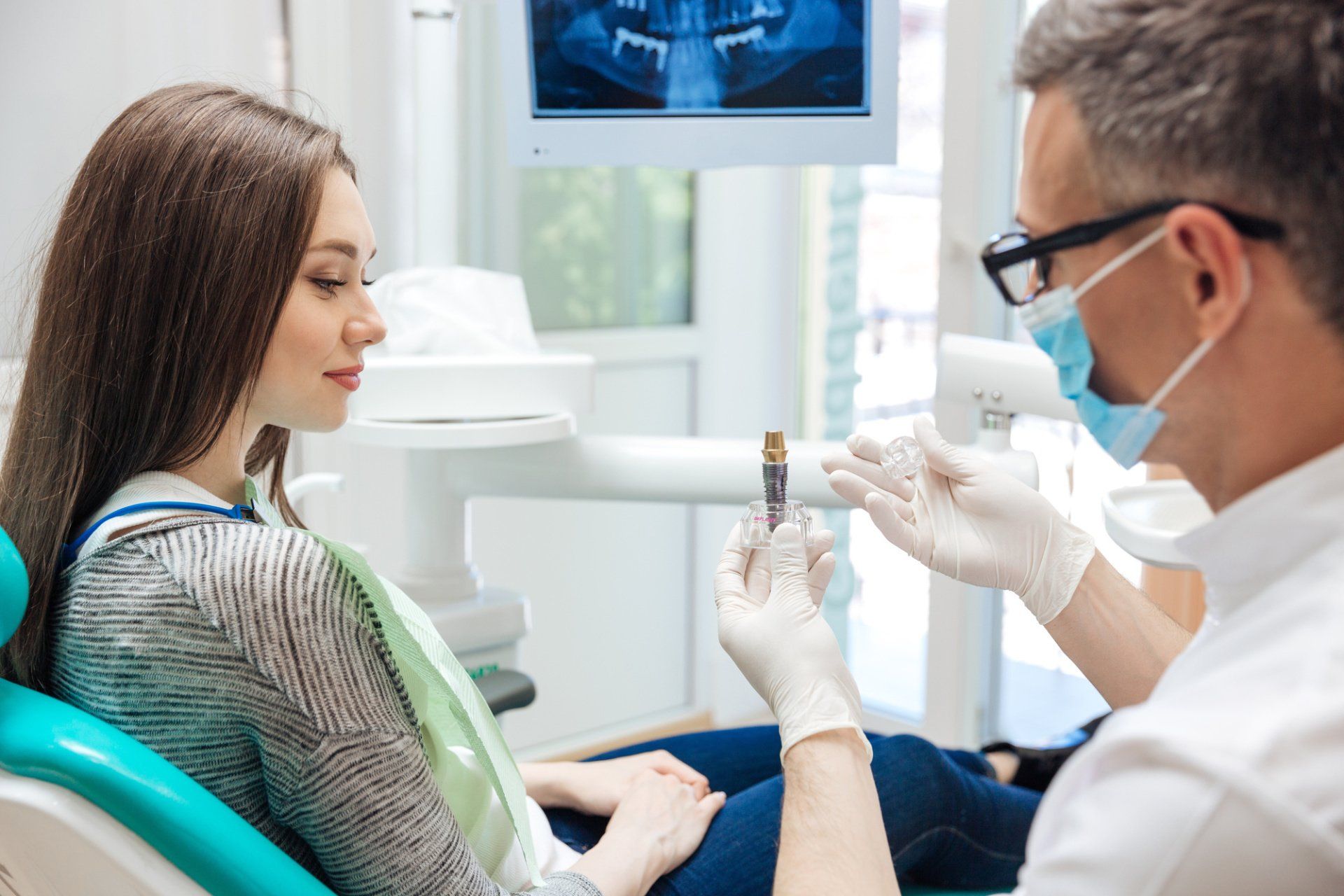Can You Reverse Periodontal Disease | How To Reverse Periodontitis
Periodontal Disease affects many people. The good news is that if it isn't too severe, you may be able to reverse periodontitis. Read on to learn more.
Periodontal disease, or gum disease, is widespread and far from uncommon. According to the Center for Disease Control and Prevention,
almost fifty percent of Americans over age 30 have some form of it. This risk increases as we age; 70% of adults over 65 have it, so chances are, at some point, you will, too.
The effects of periodontal disease can range from mild to severe, and as with any disease, it can get worse if left untreated. Fortunately, reversing this disease can be easy in the early stages if you are aware of the signs and symptoms of it.
Read on to learn everything you need to know about gum disease. Learn about different types, their severity, and how to treat them effectively.
Types of Periodontal Disease
There are several types of gum disease. They all begin with gingivitis. Gingivitis is the mildest form of periodontal disease and if caught in time, it can be treated quite easily and is reversible. Most people who experience gingivitis do not feel any pain, but their gums may be red or swollen and may bleed after brushing and flossing.
If left untreated, gingivitis will progress to periodontitis. Plaque on the teeth can spread to below the gum line and the toxin produced by it can irritate the gums. This creates inflammation that leads to the destruction of the bone, gums, and tissues that support the teeth. Pockets are formed between the teeth and gums that can get infected.
Periodontitis may not cause pain either, but in time, the teeth will become loose and some may require removal.
Periodontitis comes in many forms. Aggressive periodontitis is rather common and moves fast. Chronic periodontitis results in immense bone and tissue loss and usually occurs over a long period of time. Necrotizing periodontal disease is type of periodontal infection that arises in patients with compromised immune systems.
Risk Factors
Some people are more susceptible to gum disease due to hereditary factors. However, there are other factors and behaviors that are risk factors as well. Regular smokers often develop gum problems after smoking for many years. Hormonal changes that women experience during puberty and menopause can also play a part.
People who are diabetic tend to have higher incidences of gum disease, and cancer and some cancer treatments raise the risk, too. Medications that include dry mouth among their side effects can also lead to periodontal issues.a
Warning Signs
Many people do not realize that they are suffering from gingivitis until it has already progressed into periodontitis. However, there are many warning signs.
Again, the most common warning sign of periodontal disease is inflamed, red, swollen and bleeding gums, but not everyone experiences this. People who do experience this symptom may also notice that they have bright red or sometimes even purple gums, and their gums may hurt to the touch.
Once gum disease has progressed, individuals who have it may notice that their gums are receding. This will make the teeth look longer and larger. The teeth may even move apart or become loose.
A metallic taste in the mouth or chronic bad breath may be another sign of gum disease.
If you experience any of these symptoms, go see a dentist right away for a diagnosis.
Reversing Gum Disease
If you find that you have gingivitis, it is possible to reverse the damage so far before your condition advances to periodontitis.
At Home
First and foremost, the best way to combat gum disease is through good oral hygiene. As you learned as a child, you should brush your teeth twice a day, every day, and you should floss daily as well.
When you brush, you should brush for at least two minutes at a time. Use a fluoride toothpaste and rinse the brush well when you are finished. An electric toothbrush can be a big help to getting in the vast number of strokes required for optimum health.
Adding an antibacterial mouthwash to your regimen will also help. These not only help to prevent bacteria from growing, they also help to reduce inflammation inside your mouth.
At the Dentist
If you suspect that you have gum disease, you should visit a dentist right away. Even if you don't, be sure to go for a dental check-up at least once if not twice a year.
When you visit the dentist, a dental cleaning will help to remove built-up plaque and calculus. Scaling and debridement will clean below the gum line. If there is a lot of plaque on your teeth, you may need a deep clean over several visits to remove it all.
Root planing and scaling can help clean your gums further.
If your dentist sees fit, he or she may prescribe you a medication for your gingivitis. Antibiotic gels, chips or microspheres can help to control bacteria and shrink periodontal pockets. Oral antibiotics also may help to fight infection.
Advanced Gum Disease
If a patient's gum disease has advanced to periodontitis, there are further treatments to consider. If good oral hygiene and medications don't seem to work, then further intervention may be needed.
One way to treat advanced periodontal disease is through flap surgery. This type of surgery allows the dentist to remove plaque that is hidden in deep pockets on the sides of the teeth. After the cleaning, the gums can be sutured shut and will heal around the teeth.
Bone and tissue grafts might be needed to regenerate the bone and tissue that has been lost due to gum disease. There are several ways dentists can do these procedures and they can be very effective.
Laser periodontal therapy is a modern and advanced way to treat periodontitis. Laser therapy gives the dentist the opportunity to remove inflamed gum tissue from around the root of the tooth. This allows him or her to then perform root scaling procedures that will help improve the health of the teeth by discouraging bacteria from taking hold. Once the bacteria is removed, the gum can begin to heal.You Can Fight Periodontal Disease
It's your mouth and it's important. Keeping your breath clean and your teeth healthy is vital to overall happiness. Fortunately, when you are armed with the right knowledge, you can stop periodontal disease in its tracks before it becomes a major problem. Take care of your teeth and gums. You won't be sorry.
If you are concerned that you might have the early signs of gum disease, please call our office right away to make an appointment. We can't wait to hear from you and we are here to help.



